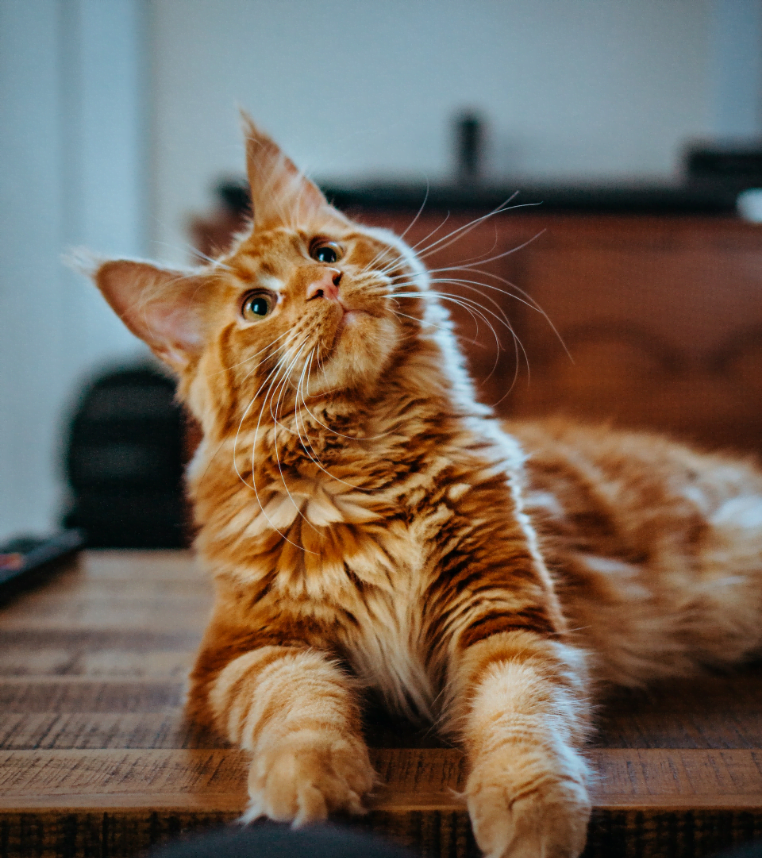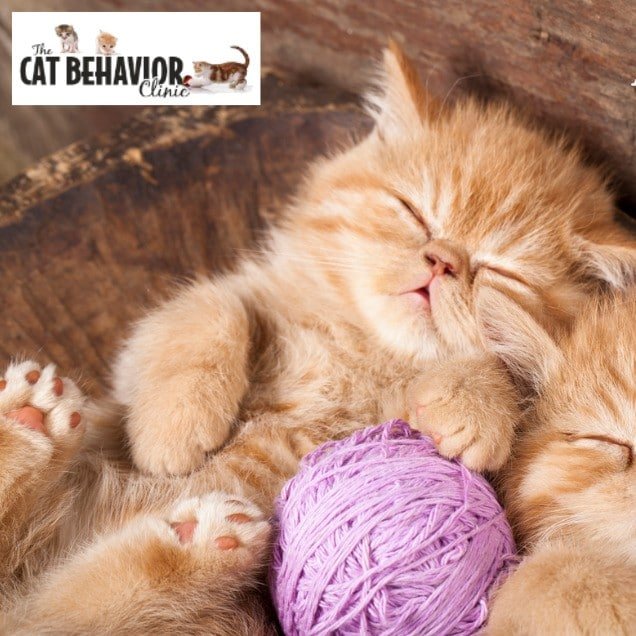How do I stop my cat from urinating and defecating outside the litter box?
Table of Contents
Section 1: Understanding the Cat’s Perspective
Section 2: Practical Solutions for Addressing Inappropriate Elimination
Introduction
Cats, those enigmatic and graceful creatures, have a way of capturing our hearts with their quirky behaviors. Yet, when your beloved feline friend decides to use your favorite rug or the corner of the living room as their personal restroom, the charm quickly fades. Dealing with a cat that urinates or defecates outside of the litter box can be a challenging and frustrating experience for any cat owner. As a Certified Cat Behaviorist™, I have been helping cat owners for more than two decades with this exact behavior issue.

In today’s world, where pets often become a cherished part of our families, understanding and resolving cat behavior issues is more critical than ever. In this blog I will delve into the complex issues of cats urinating and defecating out of their litter boxes. We’ll explore the reasons behind this behavior, discuss potential solutions, and provide insights to help you and your feline companion live in harmony.
Q: How do I stop my cat from urinating and defecating outside of the litter box?
A: This blog post provides the reasons behind cats urinating or defecating outside of the litter box and offers practical solutions to address this issue.
Section 1: Understanding the Cat’s Perspective
Before we jump into solutions, it’s essential to get inside the mind of our feline friends. Understanding why they behave this way is the first step to finding a solution.
Cats are meticulous animals, and when they choose not to use the litter box, there’s usually a valid reason. Here are some common causes:
1. Medical Issues: Cats may be suffering from urinary tract infections, kidney problems, or other medical conditions, making them unable to use the litter box.
2. Stress and Anxiety: Changes in the environment, the introduction of a new pet, or loud noises can cause stress and lead to inappropriate elimination.
3. Litter Box Problems: Cats are picky about their litter boxes. They may not like the type of litter, its cleanliness, or the box’s location.
4. Territorial Marking: Unspayed or unneutered cats might spray to mark their territory, especially during mating season.
5. Behavioral Issues: Sometimes, it’s purely behavioral. Cats may use inappropriate places out of habit or defiance.
Understanding the reasons behind your cat’s behavior is crucial for effective intervention. Now that we’ve explored the cat’s perspective, let’s move on to practical solutions to tackle this issue.
Section 2: Practical Solutions for Addressing Inappropriate Elimination
It’s time to tackle the problem head-on. Here, we will discuss actionable solutions to address the issue of cats urinating or defecating outside of the litter box.
1. Consult a Veterinarian: If your cat suddenly starts eliminating outside the litter box, consult your veterinarian to rule out any underlying medical issues. Once medical problems are addressed, your cat may revert to using the box.
2. Proper Litter Box Maintenance: Ensure the litter box is kept clean and free from odors. Cats are more likely to use a clean box, and scooping it daily is a must.
3. Multiple Litter Boxes: Consider having multiple litter boxes, especially if you have more than one cat. Cats can be territorial, and having options can reduce conflicts.
4. Litter Type and Box Location: Experiment with different types of litter and various box locations to see what your cat prefers. Some cats have specific preferences for these factors.
5. Stress Reduction: Reduce stressors in your cat’s environment by creating a calm and consistent atmosphere. Gradual introductions of new pets or changes to the home can help minimize anxiety.
6. Positive Reinforcement: Praise and reward your cat when they use the litter box correctly. Positive reinforcement can be a powerful tool in shaping their behavior.
7. Behavioral Training: If your cat’s issues are rooted in behavior, consider working with a professional animal behaviorist such as myself. We help identify and address the underlying causes. Book a consultation here: https://www.thecatbehaviorclinic.com/book-a-consultation/behavior-wellness-consultation
Addressing inappropriate elimination requires patience and persistence. The key is to find the root cause and take consistent steps to resolve it. By implementing these practical solutions, you can significantly improve your cat’s litter box habits.
Section 3: Preventing Recurrence and Building a Strong Bond
After addressing the issue of inappropriate elimination, the next crucial step is to prevent its recurrence and strengthen your bond with your feline companion.

1. Regular Check-Ups: Continue to schedule regular check-ups with your veterinarian to monitor your cat’s health. Early detection of medical issues can prevent a relapse.
2. Maintain a Clean Environment: Keep the litter box clean and fresh to ensure your cat doesn’t revert to old habits. Regularly wash the box and replace the litter.
3. Cat-Proof Your Home: Cat-proofing your home involves removing potential problem areas, such as keeping the doors closed to rooms with delicate furniture or carpets and making tempting spots inaccessible.
4. Play and Interaction: Spend quality time playing with and interacting with your cat. Mental and physical stimulation can reduce stress and prevent boredom, which is often a cause of inappropriate elimination.
5. Obedience and Training: Continue with any training or behavior modification techniques suggested by a professional. Consistency is key.
6. Patience and Understanding: Remember that cats have unique personalities, and what works for one may not work for another. Be patient and understanding as you work together to overcome this issue.
In summary, addressing inappropriate elimination is a multi-step process that involves understanding your cat’s perspective, implementing practical solutions, and maintaining a healthy and harmonious environment. By following these steps, you can reduce the likelihood of recurrence and build a stronger bond with your feline companion.
Conclusion
Dealing with a cat that urinates or defecates outside of the litter box can be challenging, but it’s a common issue with practical solutions. In this blog post, we’ve explored the reasons behind this behavior, discussed actionable solutions, and offered insights to help you and your cat coexist peacefully.
Cats bring joy and companionship to our lives, and understanding their behavior is a crucial aspect of responsible pet ownership. By addressing inappropriate elimination issues with empathy, knowledge, and patience, you can ensure a harmonious relationship with your feline friend.


